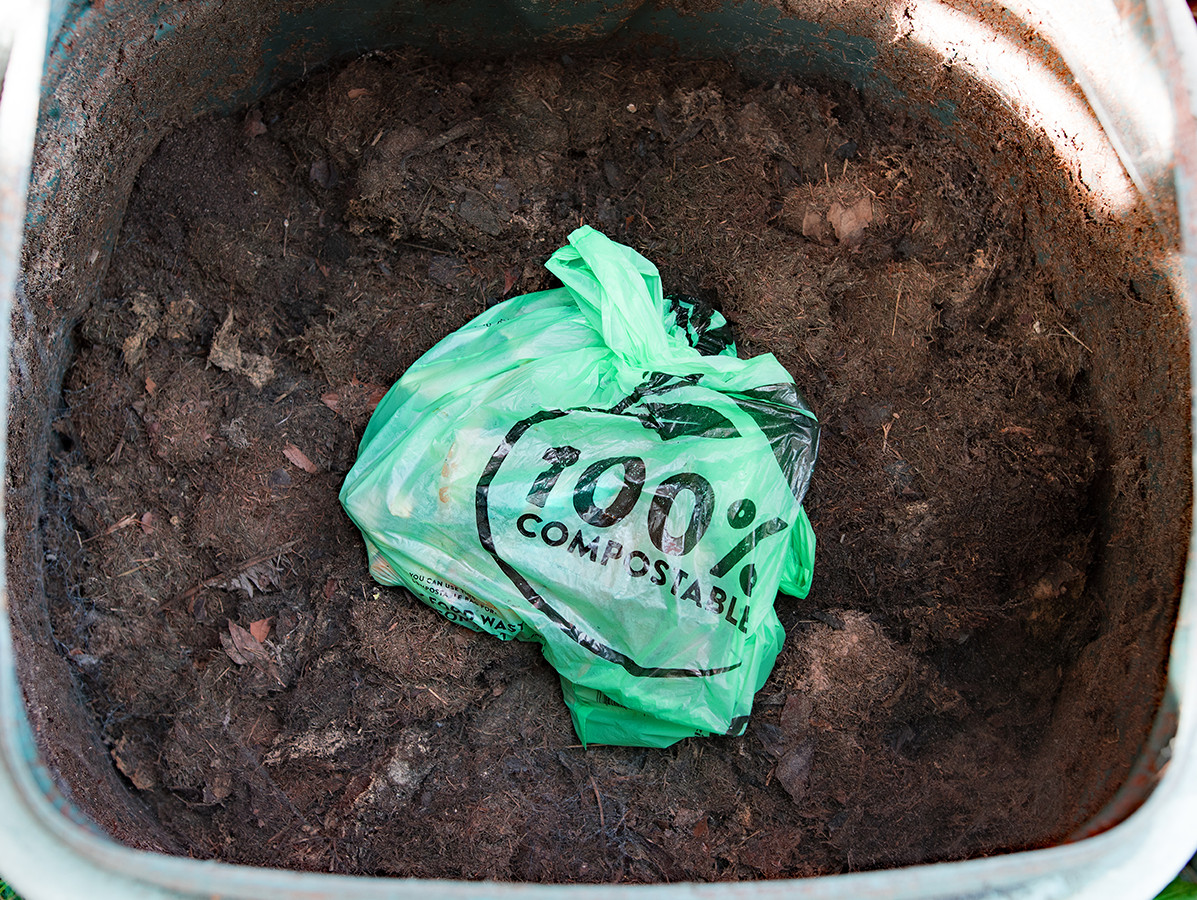
Researchers from Wageningen Food & Biobased Research have investigated how compostable plastics behave in the current VGF waste treatment process in the Netherlands. Conclusion: compostable plastics can be processed very well with VGF waste. No residues of compostable plastics were found in the end product of the VGF waste processing. However, residues of fossil (non-compostable) plastics were found.
In a representative practical trial carried out at a Dutch company processing VGF waste, compostable variants of a range of plastic products were followed during the regular VGF waste processing process. Nine products from different manufacturers were included: VGF waste collection bags, plant pots, tea bags, coffee pods, coffee capsules and fruit labels. In order to obtain usable compost, at the end of composting (in this case 11 days) the as yet undigested VGF waste is screened off. In addition, the sieved fractions were also studied further in this trial for the presence of plastics.
Approximately 20% of what came out of the composting reactor after 11 days was small enough to be classified as compost. The largest sieve fraction (10-40 mm), approx. 70% of what came out of the composting reactor, consisted of slowly digestible GFT such as remnants of branches, leaves, peels, paper, etc. that are usually reintroduced into the composting process. Approx. 1% plastic was found in the composting reactor, which consisted almost exclusively of conventional fossil plastic. The coarser sieve fraction (larger than 40 mm), which accounted for approx. 10% of what came out of the composting reactor, also consisted mainly of slowly digestible GRP. The plastics found here also turned out to be mainly conventional fossil plastics, although remains of compostable GFT collection bags were also found. It is likely that the fossil plastics will continue to accumulate in the residue while the compostable plastics will continue to degrade completely if these sieved off fractions are fed into a subsequent composting cycle as usual.
It was striking that the compostable products made of polylactic acid (PLA) were found to break down faster than, for example, paper and orange peels, and could not be found even after one composting cycle of 11 days. This applied not only to the thin tea bags, but also to the thicker plant pots.
Based on all the findings, the researchers conclude that compostable plastics that comply with the European standard EN13432 break down quickly enough in Dutch VGF waste processing. However, the presence of conventional, fossil-based plastics in VGF waste is a real problem for VGF waste processing and will have to be solved.
Photo: ©Peter is Shaw 1991/Shutterstock.com
Source: © Wageningen University & Research